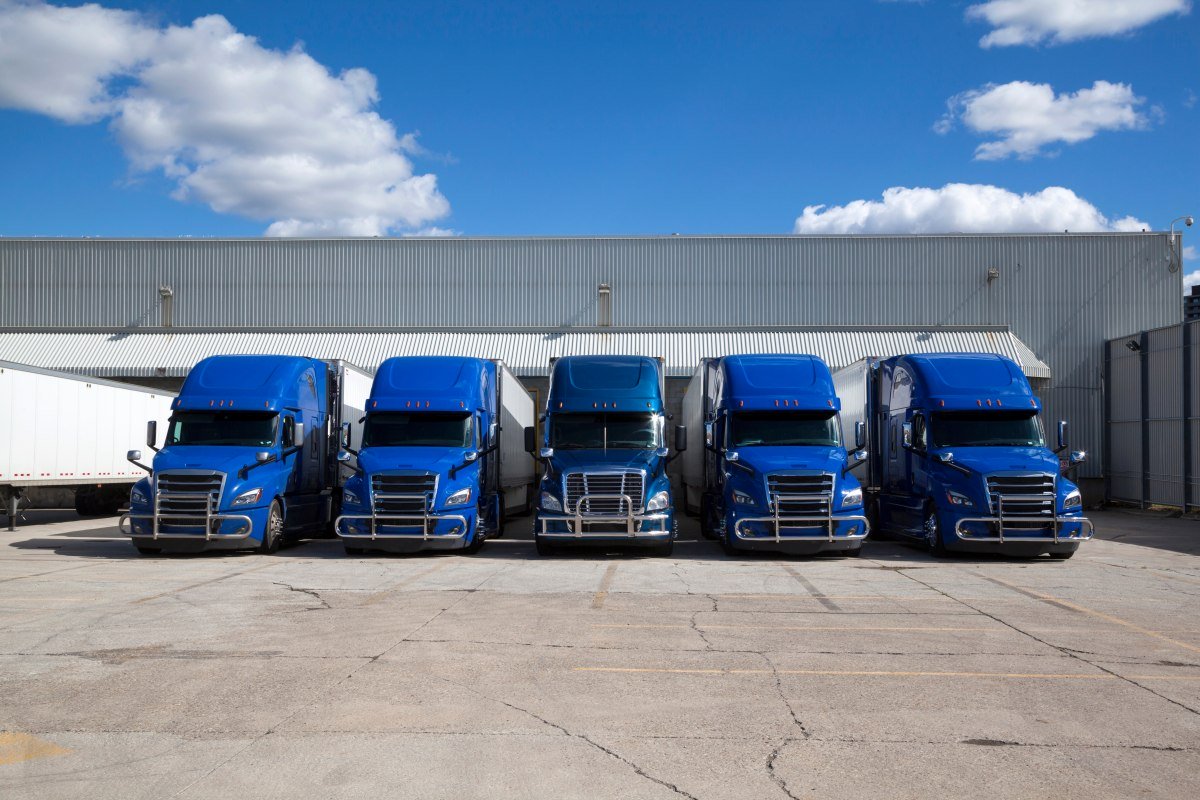
Running a trucking business often means balancing rising operating costs and unexpected repairs. When cash flow is strained or equipment needs attention, many owner-operators explore different financing options to keep their business moving.
One option you may come across is a semi truck title loan – a type of secured loan that uses the value of your existing vehicle to unlock fast working capital.
Let’s break down how semi truck title loans work, what’s required, the costs involved, and whether this type of commercial vehicle financing is the right fit for your business needs.
What Is a Semi Truck Title Loan?
A semi truck title loan, sometimes called a commercial title loan or commercial truck title loan, is a secured loan that uses your truck’s title as collateral. Instead of relying solely on credit history or time in business, the lender evaluates the truck’s value, condition, mileage, and equity.
In most cases, the title must be a clear title, meaning the truck is fully paid off, or the remaining balance is low enough to qualify.
These loans work for a wide range of commercial vehicles, including big rigs, box trucks, dump trucks, platform trucks, and car haulers.
Typical Loan Amounts and LTV
Semi truck title loans generally use loan-to-value (LTV) guidelines, where the loan amount is a percentage of the truck’s appraised value.
Loan amounts range between about 25% and 65% of the vehicle’s value, depending on the following factors:
- Age and mileage
- Truck condition
- Maintenance history
- Market demand
- Type of vehicle (for example, specialty vehicles like dump trucks or box trucks may qualify differently)
Newer commercial trucks and well-maintained big rigs with strong resale value typically allow for higher LTV ranges.

How This Differs From Other Financing
A semi truck title loan differs from unsecured business loans or personal loans because:
- It uses the truck title as collateral
- It may accept borrowers with bad credit or limited business history
- It offers a more streamlined approval process
- Funding is generally faster than waiting weeks for a traditional bank
Many lenders will still review both business credit and personal credit, especially for business owners seeking larger loan amounts.
A strong credit history can help you access competitive rates, but even borrowers with challenging credit may still qualify because the loan is asset-backed.
How Does a Semi Truck Title Loan Work?
Semi truck title loans follow a structured and predictable application process designed to assess the value of the truck, the borrower’s financial stability, and the business’s ability to manage repayment.
While details vary among direct lenders, the steps below outline how most semi truck title loans work from start to finish.
1. Confirm Ownership and Eligibility
The lender first verifies that you legally own the commercial vehicle and have a clear title or enough equity to qualify.
Most lenders require:
- Proof of ownership
- Title status showing no active liens (or a very low remaining balance)
- VIN verification
- Mileage documentation
- Proof that the truck is being used for business purposes
Some lenders allow refinancing of an existing truck loan if enough equity has built up, but most cases require substantial ownership to secure the new loan.
2. Submit the Title for Collateral Hold
During underwriting, the lender places a temporary claim on the truck title. You continue using the semi-truck, big rig, or specialty vehicle for daily operations, but the lender remains the lienholder until you repay the loan.
This step is key because a title loan is a secured loan. The vehicle itself serves as collateral. If the borrower defaults, the lender has legal rights to reclaim or repossess the truck.
3. Provide Full Business Documentation
Unlike simple car title loans, semi truck title loans require business-level documentation.
Lenders typically request:
- Business registration (LLC, corporation, sole proprietorship)
- Government-issued ID for identity verification
- Years in operation (business history)
- Bank statements (3–12 months) to verify cash flow
- Personal tax returns (1–2 years)
- Business tax returns, if applicable
- Financial statements (P&L, balance sheet, revenue reports)
- Proof of business needs (working capital, repairs, upgrades)
- Recent pay stubs for owner-operators who pay themselves payroll wages
- A brief description of business operations or business model
This documentation helps the lender determine if the trucking business can meet the repayment schedule and manage future expenses.

4. Vehicle Inspection and Valuation
A physical or digital inspection is performed to assess:
- Year, make, and model
- Engine type
- Current mileage
- Maintenance history
- Aftermarket upgrades
- Tire condition
- Emissions compliance
- Body and frame condition
- Operational performance
The inspection directly affects the loan amount, since the lender uses the truck’s real-world resale value to calculate LTV.
Many lenders also apply mileage limits or age caps. Trucks over 700,000 miles, for example, may qualify for reduced LTV due to depreciation.
5. Credit Review and Risk Analysis
While title loans rely heavily on collateral, lenders still evaluate the borrower’s credit profile.
This may include:
- A soft credit pull during pre-qualification (does not affect credit score)
- A hard credit pull before final approval
- Review of the borrower’s credit report, including payment history
- Assessment of both personal credit score and business credit
- Verification of trade lines and past commercial vehicle loans
Borrowers with excellent credit history may receive lower interest rates and more flexible terms. Those with bad credit or limited business tenure can still qualify, but may pay higher interest or receive shorter loan terms.
6. Approval, Underwriting, and Signed Agreement
Once underwriting is complete, the lender provides:
- Final loan terms
- Monthly payment amounts
- Total loan amount
- Full repayment schedule
- Applicable fees
- Interest structure (fixed or variable)
- Explanation of payment requirements
- Information on late payments, default clauses, and repossession procedures
Borrowers review and sign the agreement. Some lenders offer flexible terms, while others use strict payoff timelines typical of short-term title loans.
7. Funding and First Payment Requirements
Funding often occurs quickly (sometimes within the same day) because the loan is secured by the truck’s existing equity. Many borrowers use the funds for:
- Working capital
- Repairs
- Bridging slow revenue periods
- Paying taxes
- Replacing business equipment
- Covering emergency expenses
During the loan period, borrowers continue operating their commercial trucks normally. Monthly payments must be made according to the agreed repayment terms until the balance is paid off.
Once the loan is fully repaid, the lender releases the truck title, restoring full ownership.

What Does a Semi Truck Title Loan Cost?
The cost of a semi truck title loan varies based on the truck’s value, your credit history, business finances, and the lender’s pricing model. Here are some key factors that change the cost of a title loan.
Annual Percentage Rate (APR)
APR for semi-truck title loans can be significantly higher than for conventional commercial truck loans.
Standard semi truck financing ranges from 6% to 35% APR for qualified borrowers, but title-loan programs may reach 100% APR or higher for short terms or high-risk borrower profiles.
Fees
Many lenders charge fees that can affect the total loan amount, including:
- Origination or processing fees
- Title transfer costs
- Inspection fees
- Administrative charges
- Late-payment fees
Reputable lenders disclose these costs up front, so borrowers understand the full repayment schedule before signing.
Loan Terms
Semi truck title loans generally offer shorter terms than traditional commercial loans.
Many lenders offer terms of 6–36 months, depending on the loan amount, truck value, and business cash flow.
Short-term structures create faster payoff opportunities, but they also bring higher monthly payments.
Loan Amount
Loan amounts depend heavily on the truck’s equity, condition, and valuation. Commercial truck title loan programs can offer loans starting around $2,500 and extending to $50,000 or more, depending on the vehicle’s year, mileage, and condition.
Heavy-duty trucks, vocational vehicles, and specialty rigs may support higher loan ranges when they hold strong resale value.
Collateral Impact
Although the loan is secured by the truck title, collateral alone doesn’t guarantee a low interest rate.
Lenders still evaluate:
- Business income
- Repayment ability
- Vehicle information and mileage
- Existing debt
- Full credit approval results
Conclusion
Semi truck title loans can be helpful when you need fast access to working capital and have equity in your truck. They can support business needs, cover urgent repairs, or keep operations moving during slow periods.
If a title loan seems like the right next step for your trucking business, we’re here to help you move forward with clarity and confidence.
Mission Financial Services offers commercial vehicle title loans designed for owner-operators and small fleets who need fast, reliable funding backed by the equity in their truck.
Our streamlined approval process and flexible options make it easier to access the working capital you need – whether you’re managing repairs, covering downtime, or just keeping your business rolling.
Get in touch and start your credit application today.



